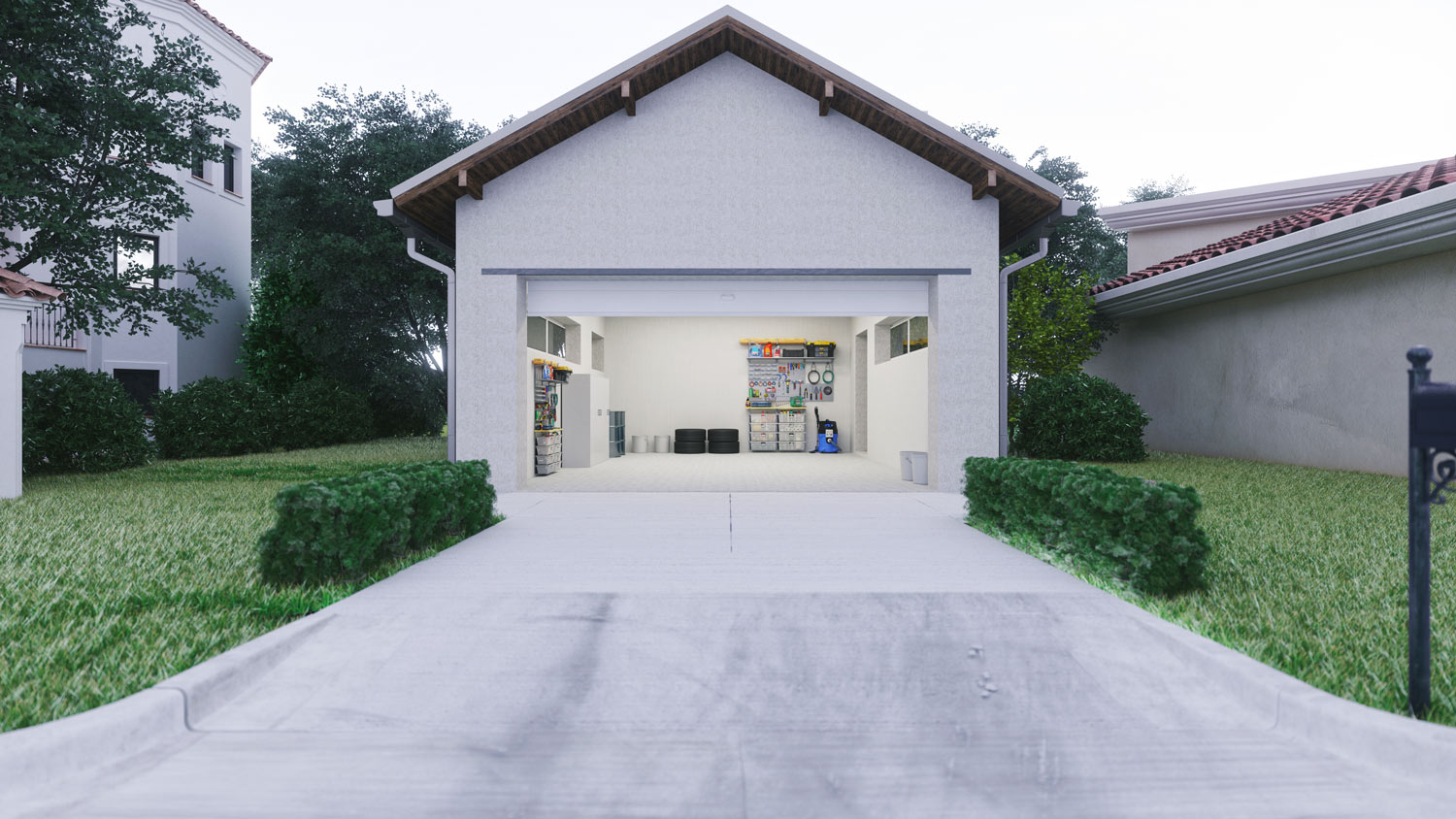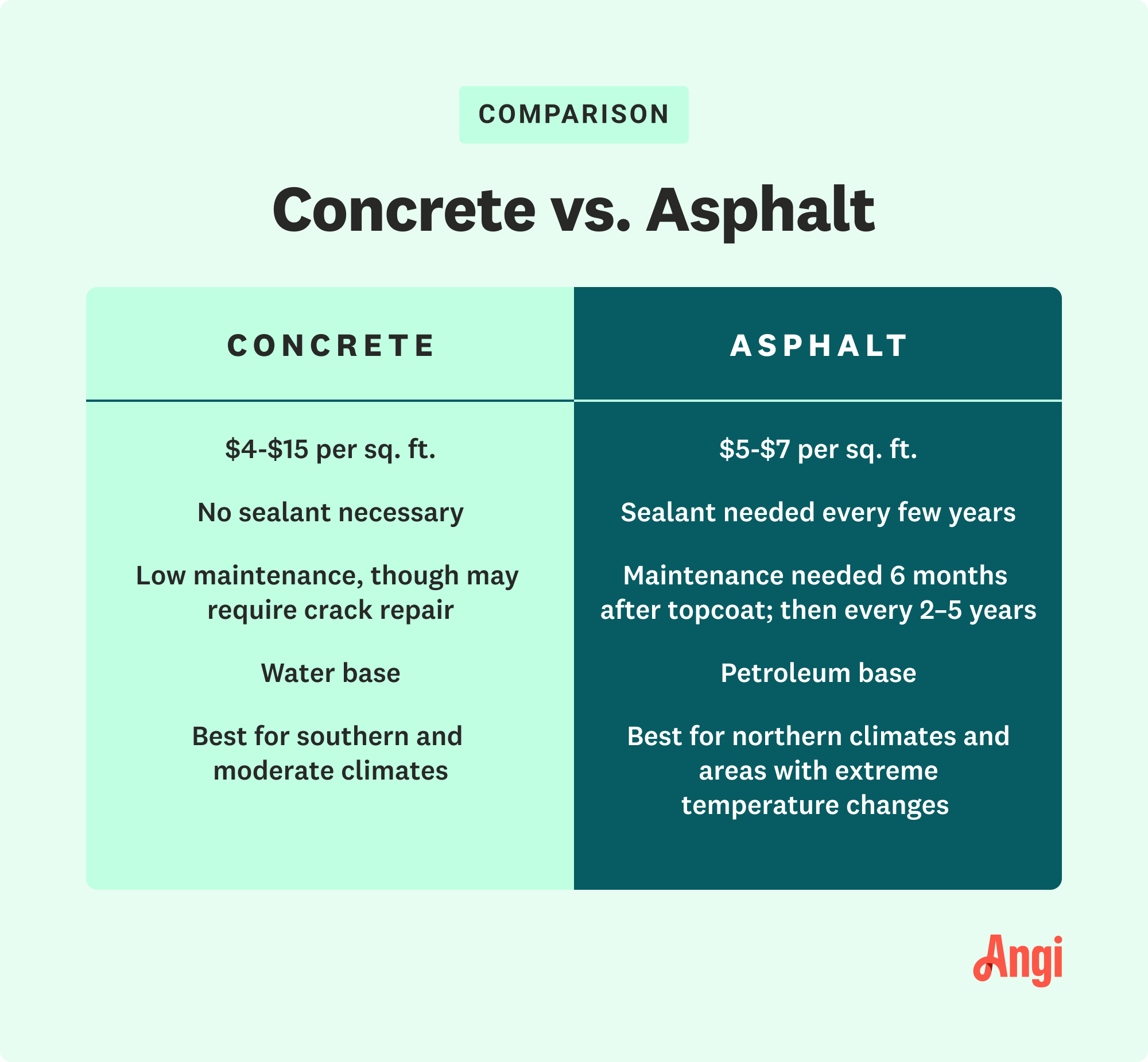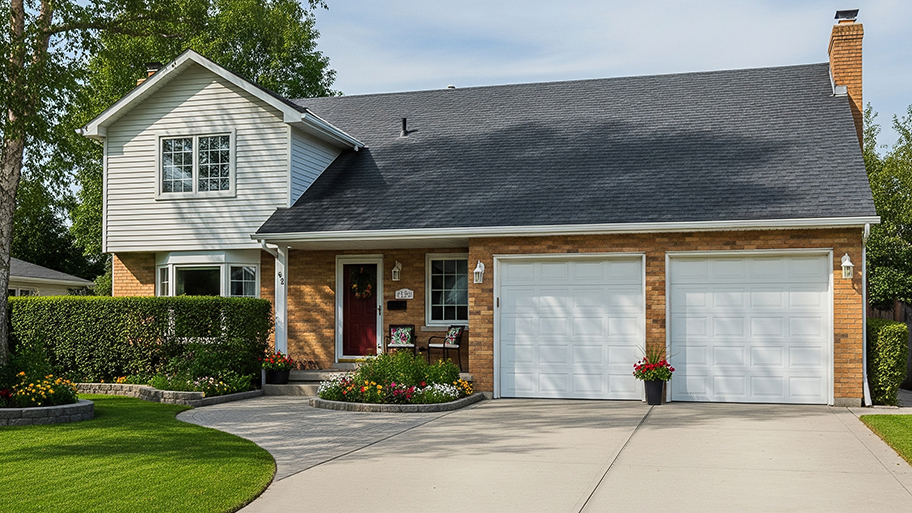
Whether you’re planning on putting in a concrete driveway, patio, or staircase, use this concrete delivery cost guide to get an accurate estimate.
Durability and easy maintenance aren’t the only advantages of concrete


Concrete can last 30–50 years with proper care and maintenance.
Concrete can be stamped, stained, and poured into different shapes as needed.
You can mix and pour your own concrete for smaller jobs.
Concrete resists fire, water, and wind, making it highly durable.
Concrete is underfoot more than you realize. This durable material might have strictly been utilitarian in the past, but it’s become a versatile part of home-building and remodeling in the last few decades. Stamped, stained, and cast, the advantages of concrete make it a clear contender for driveways, foundations, walls, and more.

Concrete is a mix of cement, large and small aggregates, and water. The water and cement act as a paste that binds the aggregates together into a tough, durable material. The types and blend of aggregates and the water ratio determine the final product's weight, density, and strength.
According to the American Concrete Institute, an organization that’s studied and standardized concrete use and continues to innovate in the concrete industry, aggregates used in concrete vary and may include but are not limited to:
Brick chips
Crushed stone
Volcanic cinder
Gravel
Sand
Clay
Pumice
Shells
Standard concrete, like that used for driveways, typically has coarse aggregates mixed with sand. Other types may have smaller aggregates mixed with more water to make the concrete smoother for countertops or sinks.
No two building projects are exactly the same. However, there are few where concrete can’t be used in some capacity, whether indoors or out. Concrete brings clear advantages to outdoor uses, but those same strengths make it a definite contender for countertops, floors, and unique decorative designs, too.
The growing number of aggregate blends used to make concrete continues to expand the ways you can use it. Pros can:
Stamp it to look like brick or stone
Mix in a stain to create different colors
Cast it into different shapes
Entire homes are made of concrete, with different types offering added insulation.
How long concrete lasts (often 30 to 50 years for a concrete driveway) makes it a good long-term investment. Keep in mind that the life of the concrete varies by the concrete mix used, freeze-thaw cycles, and the use of deicers.
For concrete projects, like installing a driveway, you can improve the life of the concrete by:
Properly preparing the ground underneath
Mixing with the recommended water ratio
Using adequate fiber or mesh reinforcements
Adequately scoring the concrete
Additionally, concrete’s durability can balance concrete slab costs, which are generally higher than other materials. Keep in mind that if you’ve got a big project, a concrete driveway pro near you will make sure to use the right concrete mix and may create a custom mix to maximize the life of your concrete.
Concrete needs minimal maintenance, especially if you install it correctly. You can repair or coat it if you want, but that's not generally needed to maintain the structural integrity. You may need to repair cracks or deice in the winter to prevent damage from contraction and expansion. However, there's no need to seal every few years like you do asphalt.
According to the U.S. Department of Housing and Urban Development (HUD), concrete can resist wind and water damage, some of the benefits as a building material. You often use it to construct buildings in areas prone to hurricanes and other extreme weather conditions.
While the pros often outweigh the cons, it’s important to weigh the disadvantages of this material for your specific project and location. Your budget and geography could make concrete a less desirable option.
Installation costs: Concrete costs more at about $4–$15 per sq. ft. compared to asphalt at around $5–$7 per sq. ft.
Low tensile strength: Tensile strength relates to the forces needed to pull the concrete apart, and concrete’s tensile strength is relatively low. Concrete can’t expand and contract like asphalt. Consequently, it can crack in climates with extreme temperature differences.
Heavy: Weight might not matter for a driveway, but a concrete counter or sink may require reinforced cabinetry to support the concrete’s weight.

You can use concrete for everything, from driveways and foundations to countertops and sinks. You can buy bags of concrete mix ready to blend with the correct amount of water. However, you have to follow the directions carefully. Too much water weakens the concrete, while too little prevents the aggregates and cement from binding correctly. New concrete cracking isn't unheard of if the water ratio isn't correct.
Different types of concrete work better in certain circumstances and conditions. It takes time working with concrete to know which type to use and when. Professionals have the necessary experience and often mix their own concrete, adjusting the aggregates and water to fit the job, making pros a good choice for larger projects.
Concrete isn’t the only choice for home-building projects. It’s useful to know the differences between concrete and its competitors to make sure you get the right material for your project.

When you’re talking about driveways, you’re probably pitting asphalt versus concrete. The two are similar in some ways but different in how and when they’re used. Asphalt is made with a petroleum-based binder that’s mixed with sand and a small, fine aggregate. You also have to heat asphalt when mixing and installing for it to flow properly. Asphalt can only cover flat surfaces because it doesn’t hold its structure the way concrete does.
Concrete often gets confused with cement, and some people use the terms interchangeably. But they’re not the same. Cement is a binding agent and an ingredient used to make concrete. You can use cement alone in some cases, but it’s more prone to cracking and breaking down than concrete. Learn more about concrete versus cement.
Mortar is another material that’s similar to but not quite the same as concrete. Mortar is made of sand, cement, and water but no large aggregate. This material acts more like an adhesive and is commonly used by bricklayers.
From average costs to expert advice, get all the answers you need to get your job done.

Whether you’re planning on putting in a concrete driveway, patio, or staircase, use this concrete delivery cost guide to get an accurate estimate.
Need to breathe new life into your exterior stoop? Use this guide on concrete step repair cost to see the price of a professional repair.

Concrete driveways stand up to a lot of pressure over the years. How much do concrete driveway repairs cost when it's time to give it a little TLC?

Concrete flooring is a durable, low-maintenance option for your home. Learn the pros and cons of concrete floors to decide if they’re right for you.

Precast concrete can save you time and money on your construction project. Learn more about precast concrete to decide if it’s right for your project.

A concrete driveway can add value to your home. Learn what factors influence your return on investment (ROI) for a new concrete driveway